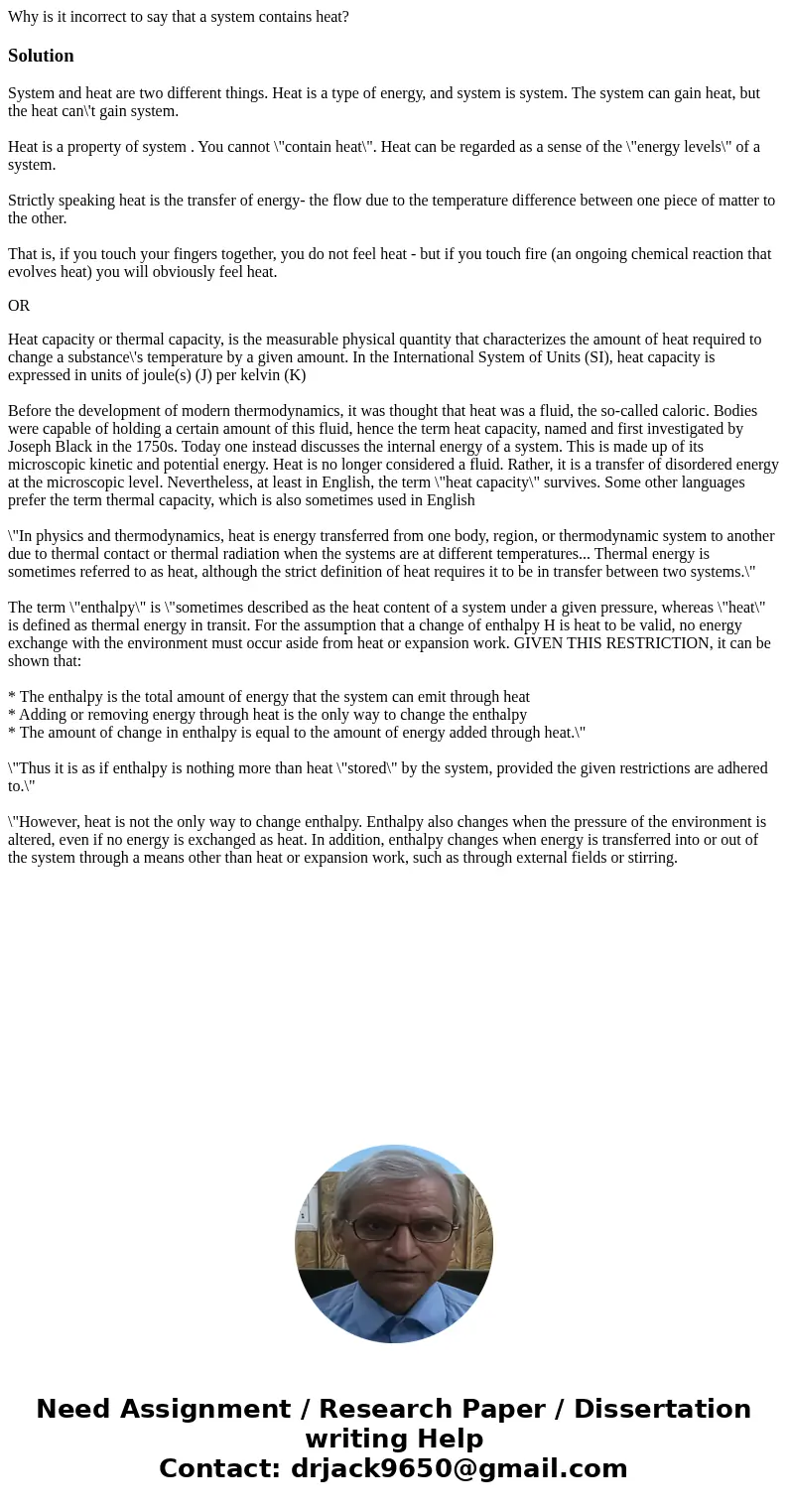Why is it incorrect to say that a system contains heatSoluti
Why is it incorrect to say that a system contains heat?
Solution
System and heat are two different things. Heat is a type of energy, and system is system. The system can gain heat, but the heat can\'t gain system.
Heat is a property of system . You cannot \"contain heat\". Heat can be regarded as a sense of the \"energy levels\" of a system.
Strictly speaking heat is the transfer of energy- the flow due to the temperature difference between one piece of matter to the other.
That is, if you touch your fingers together, you do not feel heat - but if you touch fire (an ongoing chemical reaction that evolves heat) you will obviously feel heat.
OR
Heat capacity or thermal capacity, is the measurable physical quantity that characterizes the amount of heat required to change a substance\'s temperature by a given amount. In the International System of Units (SI), heat capacity is expressed in units of joule(s) (J) per kelvin (K)
Before the development of modern thermodynamics, it was thought that heat was a fluid, the so-called caloric. Bodies were capable of holding a certain amount of this fluid, hence the term heat capacity, named and first investigated by Joseph Black in the 1750s. Today one instead discusses the internal energy of a system. This is made up of its microscopic kinetic and potential energy. Heat is no longer considered a fluid. Rather, it is a transfer of disordered energy at the microscopic level. Nevertheless, at least in English, the term \"heat capacity\" survives. Some other languages prefer the term thermal capacity, which is also sometimes used in English
\"In physics and thermodynamics, heat is energy transferred from one body, region, or thermodynamic system to another due to thermal contact or thermal radiation when the systems are at different temperatures... Thermal energy is sometimes referred to as heat, although the strict definition of heat requires it to be in transfer between two systems.\"
The term \"enthalpy\" is \"sometimes described as the heat content of a system under a given pressure, whereas \"heat\" is defined as thermal energy in transit. For the assumption that a change of enthalpy H is heat to be valid, no energy exchange with the environment must occur aside from heat or expansion work. GIVEN THIS RESTRICTION, it can be shown that:
* The enthalpy is the total amount of energy that the system can emit through heat
* Adding or removing energy through heat is the only way to change the enthalpy
* The amount of change in enthalpy is equal to the amount of energy added through heat.\"
\"Thus it is as if enthalpy is nothing more than heat \"stored\" by the system, provided the given restrictions are adhered to.\"
\"However, heat is not the only way to change enthalpy. Enthalpy also changes when the pressure of the environment is altered, even if no energy is exchanged as heat. In addition, enthalpy changes when energy is transferred into or out of the system through a means other than heat or expansion work, such as through external fields or stirring.

 Homework Sourse
Homework Sourse